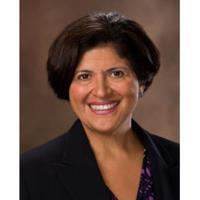Sara Ramirez


Mission Heritage Mission Viejo - Obstetrics and Gynecology
Office
(949) 364-1040
26800 Crown Valley Parkway Suite 545 Mission Viejo, CA 92691
About
Sara Ramirez
Sara Ramirez practices as an OBGYN in Mission Viejo, CA.
Primary Specialty
OBGYN
Practice
Mission Heritage Mission Viejo - Obstetrics and Gynecology
Gender
Female
Training
Jackson Memorial Hospital
Certification
American Board of Obstetrics and Gynecology - Obstetrics and Gynecology
Accepting New Patients
Insurances Accepted
Blue Shield of CA HMO - Trio, Choice/Humana PPO, Health Net - Medicare Advantage, Providence Health Plan - Medicare Advantage, US Family Health Plan - TriCare, Aetna Medicare Advantage HMO, United Healthcare HMO, United HealthCare PPO, Health Net HMO, Blue Shield of CA PPO, Anthem Blue Cross Medicare PPO, HealthSmart (Interplan) PPO, Coventry/First Health PPO, Vivity by Anthem Blue Cross, Aetna Medicare Advantage PPO, Aetna HMO, United Healthcare Medicare Advantage, SCAN Medicare Advantage, Multiplan PPO, TriWest - Tricare, Health Net PPO, Cigna PPO, Cigna HMO, Blue Shield of CA Medicare Advantage, Blue Shield of CA HMO, Anthem Blue Cross PPO, Anthem Blue Cross Medicare Advantage, Anthem Blue Cross HMO, Aetna PPO
Degrees
Medical Doctor
Office Name
Mission Heritage Mission Viejo - Obstetrics and Gynecology
Languages
Spanish, English
Services
Sara Ramirez offers OBGYN services in Mission Viejo, CA at 26800 Crown Valley Parkway Suite 545, Mission Viejo, CA 92691. Obstetricians & Gynecologists (OBGYN) specialize in female reproductive health issues as well as gynecological health issues.
To learn more about OBGYN services, or to make an appointment with Mission Heritage Mission Viejo - Obstetrics and Gynecology in Mission Viejo, CA, please call (949) 364-1040.
To learn more about OBGYN services, or to make an appointment with Mission Heritage Mission Viejo - Obstetrics and Gynecology in Mission Viejo, CA, please call (949) 364-1040.
Consumer Feedback
Service

Environment

Expertise

Staff

Recommended

View All 13 Reviews
Add a Review
Recent Reviews
Dr. Baginski is an extremely compassionate doctor as well as an excellent physician. He delivered both of our children and has continued to take excellent care of me ever since then. In fact, he save
by Cynthia
xxx.xxx.192.153
October 11, 2013
I now relax in Dr. Baginski's care. I find a certain ease and comfort in his ordinariness--the familiar sight of his tousled brown hair, stubble on his boyish face, crumples in his navy blue scrubs.
by Cate G
xxx.xxx.220.45
January 23, 2013
Recent Polls
Did this OBGYN fully explain your treatment's risks and benefits?
Yes, in-depth
by Gurney
xxx.xxx.80.32
November 09, 2013
Was the waiting area spacious?
Yes
by Anonymous
xxx.xxx.220.45
December 09, 2012